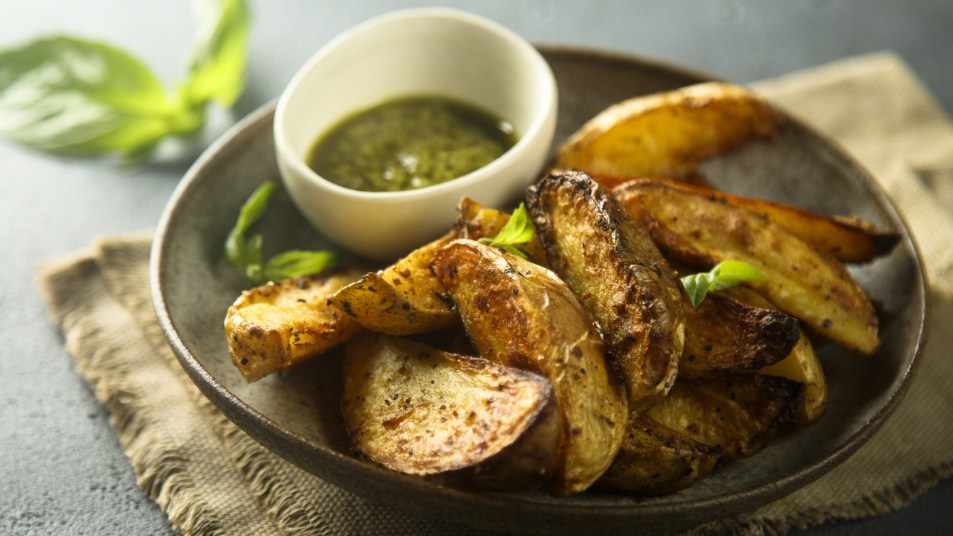Should You Eat Potatoes When Trying to Manage Your Blood Sugar?
Thanks to a recent study, we've got good news.

Whether or not you have a condition like type 2 diabetes, many of us take special care to make sure our blood sugar levels stay in check. Your blood sugar affects so many aspects of your health including your hormonal systems, heart health, brain function. As you might already know, diet and lifestyle factors can greatly affect how our bodies process sugar, and when we’re trying to manage our levels, eating — and avoiding —certain foods is crucial. However, while “white carbs” are often called the enemy of blood sugar, new research shows that potatoes may not be as bad as we’ve been previously told.
Potatoes for Diabetes and Blood Sugar
Traditionally, it’s been advised that those trying to manage their blood sugar levels be careful about consuming carbohydrate-rich foods, including vegetables like potatoes. Potatoes contain high amounts of starch, and therefore have a higher glycemic index. This basically means that those starches get converted easily and quickly into sugar in the bloodstream, elevating blood glucose levels. But while we’ve been told to steer clear of the starches, new research shows that potatoes might actually be a safe addition to a blood-sugar-friendly diet.
For the new study, which was published in the journal Clinical Nutrition, 24 adults with type 2 diabetes completed four experimental trials in which they consumed specific meals at dinner time. The dinners contained either boiled potatoes, roasted potatoes, boiled potatoes that were cooled for 24 hours, or low-GI basmati rice, along with other foods. The meals were composed of 50 percent carbohydrates, 30 percent fat, and 20 percent protein.
According to the results, when subjects ate the evening meal including skinless potatoes, they had a lower overnight blood glucose response compared to those who ate a meal including low-GI basmati rice. The study authors concluded that potatoes could, therefore, be considered suitable for individuals with type 2 diabetes (or anyone trying to manage blood sugar) when consumed as part of a mixed evening meal.
Other Factors
When considering these results, it’s important to note the total nutritional composition of the meals that were eaten, since the researchers didn’t just test how blood sugar was affected by eating potatoes alone. The GI index is generally a useful tool, but it only represents how a food can affect glucose levels when it’s eaten on its own.
However, what you’re eating your starchy carbs with does have an effect on what happens to your blood sugar. Research shows that both fats and proteins may help to regulate blood sugar levels. Protein has shown to slow down digestion and prevent post-meal blood sugar spikes. Similarly, other studies have shown that eating a diet rich in monounsaturated or polyunsaturated fat helps improve blood sugar control as well. One even specifically found that eating a meal with these “healthy fats” and potatoes resulted in lower blood sugar levels in patients with diabetes.
So if you’re trying to keep your levels in check, adding potatoes to your meals, as it turns out, isn’t such a bad thing. Just make sure that those meals are balanced with lean proteins like fish or chicken, and healthy fats like avocados or olive oil. And if this news excites you as much as it does us, check out this hack for making the crispiest oven-roasted potatoes!













